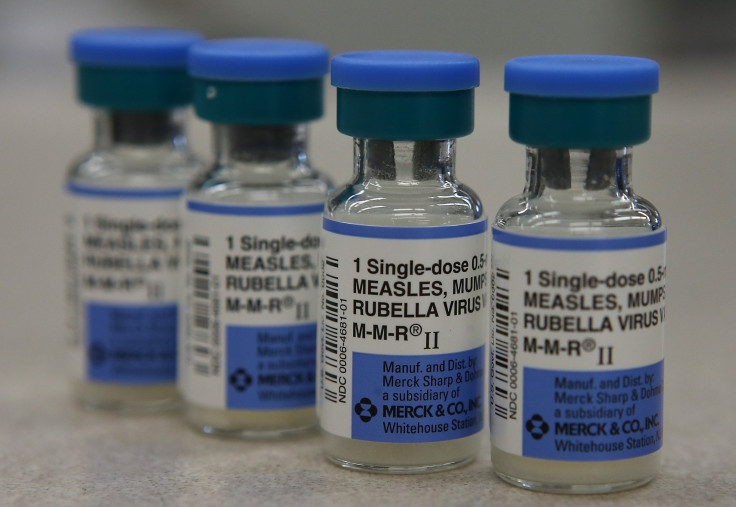WHO Declares Americas First Region To Be Free Of Endemic Measles

The Americas have been declared free of endemic measles, the World Health Organization declared Tuesday, culminating a 22-year effort to rid the region of measles, mumps and rubella through mass vaccinations.
“Measles is one of the most contagious diseases and affects primarily children. It is transmitted by airborne droplets or via direct contact with secretions from the nose, mouth and throat of infected individuals,” said the Pan American Health Organization (PAHO) — the Americas arm of WHO – in a statement.
Characterized by symptoms like high fever and rashes, measles can lead to severe complications like blindness, encephalitis, severe diarrhea, and even death. Before mass vaccination began in the 1980s, the disease killed almost 2.6 million people a year. WHO statistics showed that last year, 244,704 measles cases were reported across the world.
Following the eradication of smallpox, poliomyelitis, and rubella and congenital rubella syndrome, measles has become the fifth disease to be eliminated from the region through vaccination.
“This is a historic day for our region and indeed the world,” Carissa Etienne, director of PAHO, told a meeting of the organization in Washington. “It is proof of the remarkable success that can be achieved when countries work together in solidarity towards a common goal. It is the result of a commitment made more than two decades ago, in 1994, when the countries of the Americas pledged to end measles circulation by the turn of the 21st century.”
The last outbreak of endemic measles in the region occurred in Venezuela in 2002. There have, however, been instances of imported cases like the one in the U.S. in early 2015 where at least 147 people were infected at a Disney theme park in California, NBC News reported. Between 2003 and 2014, 5,077 imported measles cases were registered in the Americas, the PAHO said.
The expert committee attributed the delay in declaring the region free of measles to the uneven infrastructure present across the Americas. While some areas provide easy access, there are others with a high number of mobile migrants. In addition, reaching certain areas is tough because of the ongoing violence.
“I would like to emphasize that our work on this front is not yet done,” Etienne added, with a note of caution. “We cannot become complacent with this achievement but must rather protect it carefully. Measles still circulates widely in other parts of the world, and so we must be prepared to respond to imported cases.”
“It is critical that we continue to maintain high vaccination coverage rates, and it is crucial that any suspected measles cases be immediately reported to the authorities for rapid follow-up,” she said.
Published by Medicaldaily.com



























